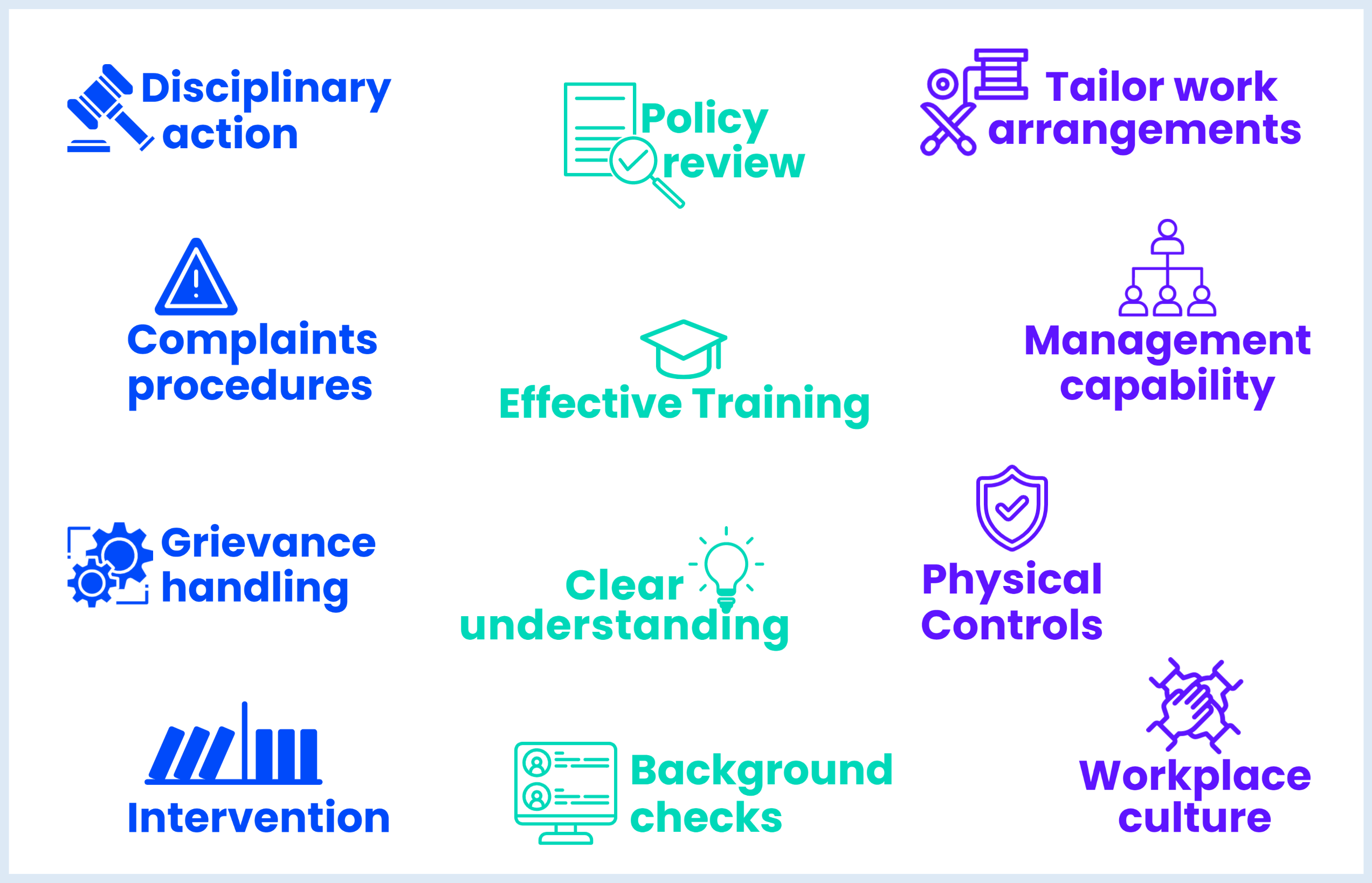Positive duty to prevent sexual harassment – what do employers need to do?
There’s a new ballgame in town. The changes to the Anti-Discrimination and Human Rights Legislation Amendment (Respect at Work) Bill impose a positive duty on employers to prevent sexual harassment in the workplace.
While historically employers have always had an obligation to prevent sexual harassment by taking all reasonable steps – this shifts the focus to risk assessment and preventative action: an issue to be dealt with proactively alongside an employer’s existing occupational health and safety obligations.
The positive duty requires an organisation to take reasonable and proportionate measures to eliminate, as far as possible sexual harassment, harassment on the ground of sex, hostile workplace environments or acts of victimisation against persons relating to their complaints, proceedings, assertions or allegations of any of that conduct.
Reasonable and proportional measures will vary, depending on the circumstances of a particular workplace. It depends on the size, nature and circumstances of the business, the available resources (financial or otherwise), and the practicality and costs of those measures.
So how do employers know what is required for their organisation to reduce the risk of sexual harassment occurring, and to try to mitigate their liability should a claim be made?

At Azuhr, we recommend you consider the new obligations in the same way you currently assess any risks across your organisation:
1. Have you assessed the risk? Do you know where your areas of non-compliance may be?
2. Do you have a strategy in place to address those risks? Do you have your prevention plan ready to ensure compliance?
3. Do you have a process in place to continuously review and improve as your organisation and/or the law changes?
Assessing your risk
Organisations should be reviewing:
– How you attract people into your workplace? Do you conduct robust background checks? Are your job advertisements and descriptions reflective of an inclusive environment?
– Your policies and procedures – Are these clear, up to date and available to all in the organisation? Are you regularly communicating expectations for policy compliance to the workforce?
– Do you have clear grievance handling procedures and a consequence management framework in place?
– Your training (this is a no-brainer!). Training employees in your policies and particularly in Appropriate Workplace Behaviour is the minimum a tribunal will be expecting to see as a strategy to prevent sexual harassment.
Create your Prevention Plan
Your strategy to prevent sexual harassment in the workplace should include:
– Training for all employees. Effective training for employees so that they can identify and address inappropriate behaviour is available through virtual, face to face or online channels.
– Walk the talk. Leadership education and coaching, including bystander training, to ensure people understand what is expected in the workplace.
– Ensuring that any physical risks are addressed (eg, appropriate rostering, or ensuring safe, public and well lit access to the workplace.)
– Offering independent support services for employees – EAP’s for situations that are causing psychological distress and/or Ombpoint for the practical skills to resolve workplace issues.
– Appropriate use of complaints procedures and robust investigations when grievances are made. Intervention and disciplinary action when complaints are founded.
– Incorporate behavioural expectations into performance reviews, variable pay criteria or your enterprise agreement.
Continuous review
You don’t create a risk matrix and then shelve it forever. Risks and their mitigation strategies all need regular review. Organisations should consider:
– Regular review of policies and procedures.
– Cultural reviews to determine whether there are any hidden risks in the business which create an unsafe work environment.
– Revise your reward framework to ensure that the right behaviours are rewarded.
– Monitor complaints trends and whether action is being taken for breaches of behaviour.
– Adapt training to address issues.
While this may feel overwhelming, there are many opportunities to make small changes that will help demonstrate your commitment to creating a safer workplace and also provide greater protections to your employees.
At Azuhr, we work with many workplaces and are well placed to help organisations identify what needs to be done to meet (and exceed) these new obligations.
And while we have focussed on risk mitigation, we recognise that the activities we have recommended will have a more important and lasting impact on your business, as a catalyst for building and sustaining high performing, inclusive workplaces.
Get in touch with Azuhr for:
Policy reviews
HR Audits
Training including Appropriate workplace behaviour training
Culture reviews
Workplace investigations
HR and ER support
Peitra Moffat
Managing Director
Azuhr
+61 2 9169 8448
Our Sydney Office
- Phone: 1300 909 819
- Address: Level 5, 1 Bligh Street, Sydney, NSW 2000
Our Melbourne Office
- Phone: 1300 909 819
- Address: Level 9, 140 William Street, Melbourne, VIC 3000
Our Perth Office
- Phone: 1300 909 819
- Address: Level 29, 108 St Georges Terrace Perth WA 6000
Our Brisbane Office
- Phone: 1300 909 819
- Address: Level 7, 300 Queen Street, Brisbane, QLD 4000
OUR OFFICES
Where To Find Us
We’re here to help you navigate the human resources and employee relations landscape, with offices and consultants across Australia.

 PREV
ARTICLE
PREV
ARTICLE





